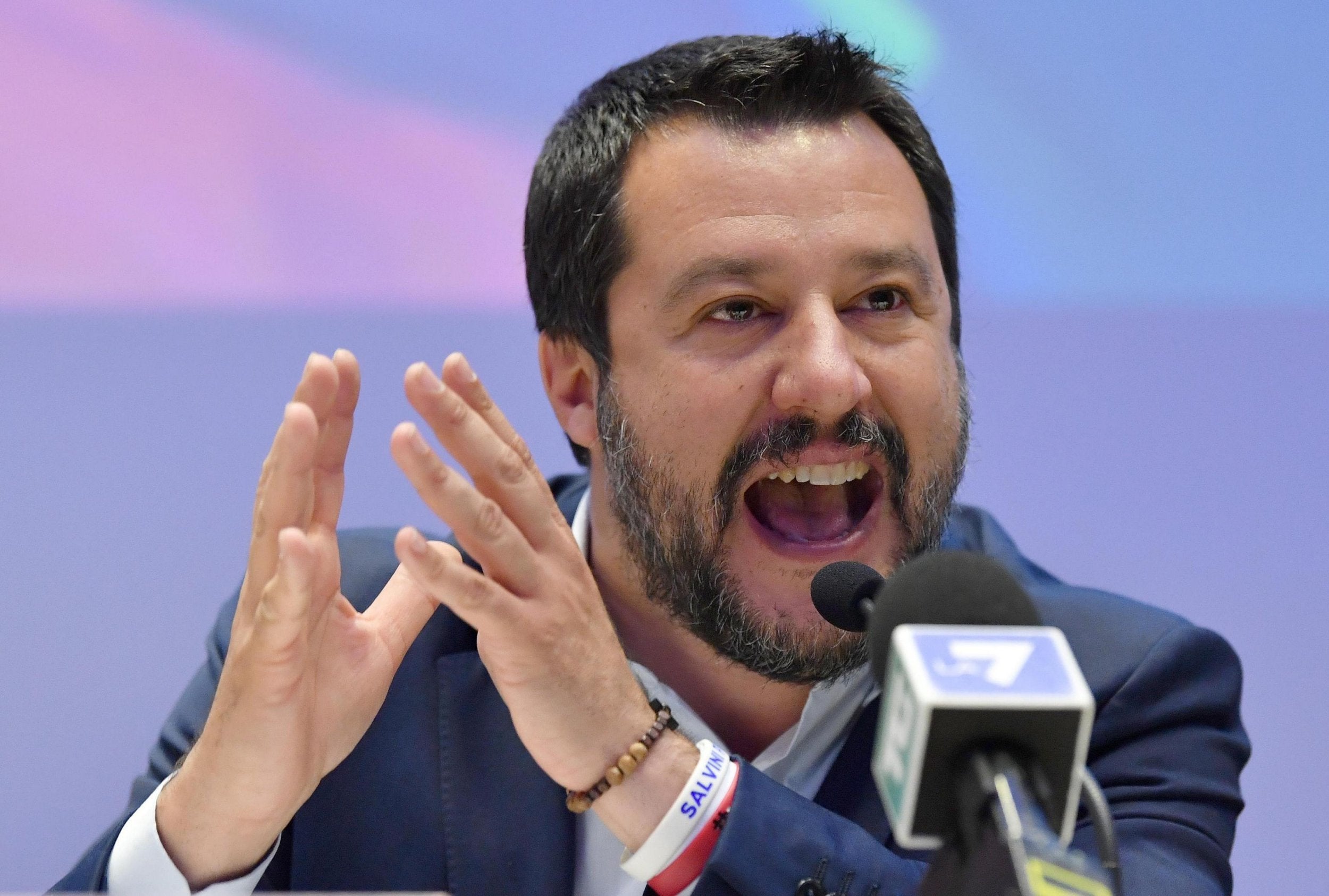Europe's far-right parties are dragging us back to dangerous ideologies just as elections loom
The European Parliament vote is a chance for left-wing politicians to offer an alternative vision. They have one month.


Ahead of European Parliament elections next month, far-right parties throughout Europe are joining forces, forming a new alliance under Steve Bannon’s wing.
Bannon, Donald Trump’s former chief strategist, wants to “promote” right-wing populist groups in Europe. Matteo Salvini, Italy’s interior minister and leader of the extremist League party, hopes that by joining “The Movement” he’ll be able to shake things up in the EU.
He has gathered right-wing friends from the Netherland's Party for Freedom to Alternative for Germany (AfD); from the right-wing populist Danish People’s Party to the Finns Party. Some polls indicate far right and populist parties could end up with as many as a third of MEPs in the elections.
This move means the far right is hardening its grip on Europe. Previously, these political parties have been forced into some level of cooperation with moderates, while they sat in other parliamentary groups. Now that they have formed a new alliance, the fear must be that can do as they please, injecting their rhetoric into our societies even more, without having to shy away.
The parties that have joined The Movement are often called “conservative”, “extreme-right”, “nationalist”, “anti-European” or “anti-immigrant”. They sell themselves to their electorate by stating they want to maintain or protect their heritage and their people. Refugees, Muslims, empowered women and the EU will change our societies. And change is a bad thing, they warn.
Right-wing nationalists and their politics of fear are on the rise in Europe. Only last month in the Netherlands a new political party, FvD, won the elections for the upper house of parliament, changing the Dutch political landscape instantly. Their leader, Thierry Baudet, held a victory speech in which he referred to the Owl of Minerva (a Hegelian reference to changing epochs) and used expressions such as “boreal world” (sometimes thought of as a euphemism for “white civilisation”), openly flirting with nazi-style rhetoric.
But it has nothing to do with fascism, Baudet says, presenting himself as a romantic. One that is dreaming of a white world.
What’s so stifling about the popularity of these political parties is what is at the heart of it all: the intrinsic hate for and fear of “the other”. Pursuing social change through politics is one thing, doing so and harming others along the way is another.
The same fear of the other is what has driven the UK into this mess called Brexit. While many may think choosing to leave the EU was mainly driven by the wish for sovereignty, in fact it has more to do with being able to close the borders to immigrants, thereby “protecting” the UK from the others. That explains why Theresa May’s unloved compromise Brexit deal has as one of its famous “red lines” an end to freedom of movement.
The language used by our politicians matters. It can give hope and create solidarity. But it can also do the opposite.
On Tuesday, the Dutch daily newspaper NRC Handelsblad reported that the organization “Identitair Verzet” is training its members for “a fight for the white race”. Supporters are sent off to training camps in France, seeking an alliance with other extremist groups throughout Europe.
After the Second World War many people said: “never again”. For a long time, extreme nationalism was rightfully seen as a threat and one that could never re-emerge: civilisation was now a fact. In the nineties “ideology” became a dirty word, it even became a little old-fashioned to speak of “left” or “right”.

Yet somehow, over the past decade, debates that we thought had been set aside started resurfacing. Topics such as abortion, vaccinations, refugees, race and religion are now open for debate again under the auspices of “freedom of speech”, topped off with a sprinkle of fear.
“When we drop fear, we can draw nearer to people,” the American author bell hooks once wrote. “We can draw nearer to the earth, we can draw nearer to all the heavenly creatures that surround us.”
If only left-wing politicians knew how. They have one month.
Join our commenting forum
Join thought-provoking conversations, follow other Independent readers and see their replies
Comments
Bookmark popover
Removed from bookmarks